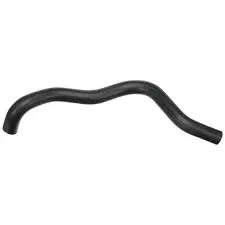Automotive Fuel Hose Solutions for Reliable Performance and Safety in Vehicles
Nov . 24, 2024 05:08 Back to list
Automotive Fuel Hose Solutions for Reliable Performance and Safety in Vehicles
The Importance of Automotive Fuel Hoses An Overview
Automotive fuel hoses are an essential component of any vehicle's fuel system. These hoses are responsible for transporting fuel from the fuel tank to the engine, and they must maintain integrity and performance throughout their life. Understanding the role of fuel hoses, their materials, and best practices for maintenance can significantly enhance vehicle safety and efficiency.
Understanding Fuel Hoses
Fuel hoses are flexible tubes made to carry fuel in various types of vehicles, including cars, trucks, and motorcycles. They are engineered to withstand high pressures and temperatures, which makes their construction critical to the vehicle’s operation. Typically, fuel hoses are located underneath the chassis and run close to the engine, where heat and pressure can potentially compromise their integrity.
Types of Fuel Hoses
There are several types of automotive fuel hoses, categorized mainly by their application and material. The most common types include
1. Vapor Return Hoses These are designed to carry fuel vapors back to the fuel tank for recondensation, helping to reduce emissions and improve efficiency.
2. Fuel Feed Hoses This type transports fuel from the tank to the engine. It needs to be highly resistant to wear, heat, and corrosion.
The choice of material is crucial, as different fuels (gasoline, diesel, biofuels) may require specialized hoses. Common materials include rubber, reinforced rubber, and synthetic materials like thermoplastic elastomers (TPE).
Material Considerations
automotive fuel hose

High-quality materials are fundamental to the longevity and performance of fuel hoses. Traditional rubber hoses, while effective, may degrade over time due to exposure to fuels and environmental conditions. Synthetic materials, such as TPE, have become increasingly popular as they offer improved resistance to degradation and longer service life. Additionally, braided stainless steel hoses are used in performance applications where high pressure and durability are paramount.
Maintenance and Inspection
Regular inspection and maintenance of automotive fuel hoses are vital for ensuring vehicle safety. Over time, hoses can develop cracks, leaks, or other forms of wear that may lead to serious issues, including fuel leaks that can pose fire hazards or engine performance problems. Auto mechanics recommend checking fuel hoses at least once a year for signs of wear, such as
- Cracks or splits on the surface. - Bulges or swellings in the hose. - Soft or brittle texture, indicating degradation. - Fuel stains around the connections or hose fittings.
If any abnormalities are detected, it's crucial to replace the affected hoses immediately to prevent potential accidents or costly repairs.
The Impact of Quality Fuel Hoses
Investing in high-quality fuel hoses can significantly impact a vehicle’s overall performance and efficiency. Premium hoses can better resist heat and pressure fluctuations, ensuring a consistent fuel supply to the engine. This not only enhances engine performance but also improves fuel efficiency, leading to a more economical driving experience.
Moreover, quality fuel hoses can also reduce the risk of emissions. With modern advancements and regulations focusing on reducing vehicular emissions, having reliable and durable fuel hoses helps manufacturers and consumers alike comply with environmental standards.
Conclusion
Automotive fuel hoses may seem like a small part of a vehicle, but their role is critical to safe and efficient operation. Understanding the types, materials, and maintenance practices for fuel hoses can empower vehicle owners to ensure their cars remain in optimal condition. By prioritizing the health of fuel hoses, owners can enhance safety, improve performance, and contribute to reduced environmental impact. Regular inspections and using high-quality replacements are steps every vehicle owner should take to maintain the integrity of their fuel systems and ensure a safe driving experience.
